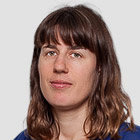Exscientia, an Oxford-based firm that uses artificial intelligence to develop medicines, has won a $1.5m grant from the Bill & Melinda Gates Foundation to create a Covid-19 treatment that also works for new mutations or other Sars viruses.
The company, a spin-off from the University of Dundee, is based at the Oxford Science Park. It counts Japan’s SoftBank, the fund manager BlackRock, and the US drug firm Bristol Myers Squibb among its financial backers.
Exscientia aims to develop a drug within 12 months, then recruit volunteers for clinical trials.
The company has used its AI technology to design a new class of inhibitors targeting the main protease enzyme of Sars-CoV-2, which is essential for replication of coronavirus. The firm will work on turning these small molecule inhibitors into a pill to treat Covid-19. It hopes the therapy will also be effective against new mutations and other coronaviruses.
Denise Barrault, a biologist and senior portfolio manager at Exscientia who set up the new project and will manage it, said the firm was aiming for a low-cost pill that could be distributed globally and given quickly to people who fall ill with Covid to ward off serious illness and hospitalisation.
She said: “People who get Covid really need to be treated immediately. They would be administered with the pill and the disease would be far less severe and people would avoid having to go to hospital … We can’t vaccinate everybody and vaccines will lose their effectiveness – only the richest countries will be able to keep up.”
Up to 15 biologists, chemists and AI specialists will work on the project.
“The danger of new emerging strains and mutations of coronavirus means there is an urgent need for new antiviral drugs in this pandemic alongside vaccines, to respond more quickly in potential future coronavirus pandemics,” said Barrault.
Exscientia, using its AI technology, has worked with the German firm Evotec on a cancer immunotherapy for adults with advanced solid tumours. It is now being tested on people. It took just eight months to develop the treatment, while a separate drug for obsessive-compulsive (OCD) disorder, developed in partnership with Japan’s Sumitomo Dainippon Pharma, took 12 months.
This testing stage of drug development typically takes four to five years but artificial intelligence can speed it up considerably. The OCD drug and another neuroscience drug, for Alzheimer’s disease psychosis, are both in human clinical trials.
Exscientia has also screened thousands of existing drugs for their effectiveness as a Covid-19 treatment. However, as some were given as an infusion there were problems in setting up infusion centres and none have been adopted as Covid treatments.
The new grant is provided by the Covid-19 Therapeutics Accelerator, an initiative by the Gates Foundation, Wellcome and Mastercard aimed at speeding up the response to the coronavirus pandemic.











